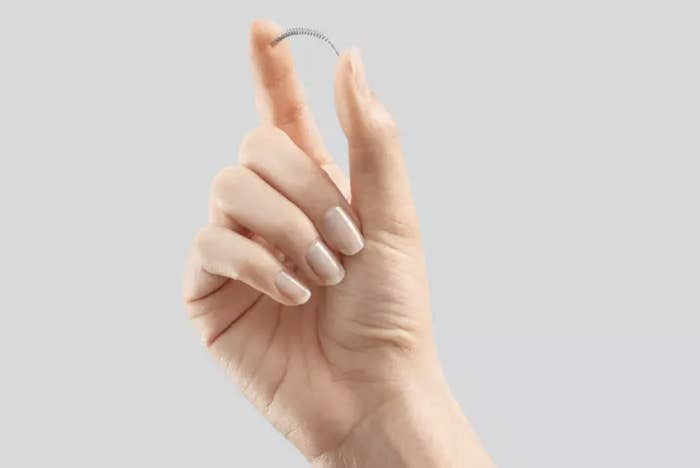
The FDA on Monday announced strict new requirements on the controversial Essure sterilization device, which already comes with a "black box warning," the strongest warning label the agency can require.
The agency is now requiring that Bayer, the manufacturer of the device, only sell Essure to doctors who talk patients through a two-page checklist of possible dangerous side effects before implanting the device.
"We have evidence to believe that some women are not getting access to this checklist before the device is being implanted," Deborah Kotz, a spokesperson for the FDA, told BuzzFeed News. "The FDA is telling the company that they are not allowed to sell to doctors who don’t do this."
This is the first time in the agency's history that such strict safety requirements have been added after a device is already on the market, Kotz added.
We’re taking this first of its kind action to use certain post market authorities because we believe additional, meaningful safeguards are required to ensure women are able to make informed decisions about risk when considering Essure for birth control: https://t.co/KZoaePWEqq
Essure, which boomed in popularity when it first came on the market in 2002, has been billed as a convenient alternative to surgical sterilization, informally known as getting your tubes tied. Without requiring any anesthesia or surgery, Essure — a set of metal and polyester coils that are placed in a woman's fallopian tubes — permanently prevents pregnancy by stopping sperm from reaching a woman's eggs. Bayer has reportedly sold 750,000 devices worldwide.
The warning label was added to the device in 2016 after thousands of adverse event reports were submitted to the FDA describing issues such as persistent pain, perforation of the uterus or fallopian tubes, abnormal bleeding, allergic reactions, and unplanned or ectopic pregnancies.
Two years later, however, many women who have gotten the device have claimed that their doctors weren't telling them about the warnings.
At a meeting this February between FDA chief Scott Gottlieb and representatives from a Facebook group representing 36,000 current and former Essure patients, the women provided survey data from the group showing that of the 476 women who had joined since the black box warning was added, only 8 claimed their doctors had told them about the safety issues.
"This is for actual informed consent," Angie Firmalino, the founder of the Essure Problems group, told BuzzFeed News. "To actually have a conversation with a doctor, and for that doctor to have to look you in the eyes and have to read through a two-page document on the possible dangerous side effects of this device — that sinks in a lot more than a tiny little paragraph at the back of a pamphlet."
Bayer emphasized that the risk-benefit profile of Essure had not changed and that communicating risks with patients was in keeping with its values as the device's manufacturer.
"Bayer has educated and continues to educate healthcare providers about the importance of appropriately counseling each patient on the benefits and risks of Essure," Bayer spokesperson Courtney Mallon said in a statement. "The FDA requested we update the label to emphasize this point."
In February, the FDA and Bayer cited a new study that showed Essure is generally safe. The study of 105,000 women in France who had undergone either Essure insertion or a tubal ligation found that one to three years after insertion, Essure came with a higher risk of sterilization failure, but did not increase the risk of medical complications, except for women with a history of allergies.
For Firmalino and her fellow Facebook group members, many of whom are currently suing Bayer, the FDA's move could signal an even more drastic change: the possibility that the manufacturer would pull Essure from the market.
"We really weren’t expecting the FDA to do anything that actually benefited women, so this was a huge move for the commissioner to make," Firmalino said. "It does look like it’s going to restrict Bayer's sales until they are in compliance. So I have a feeling this will be the final nail in the coffin."
